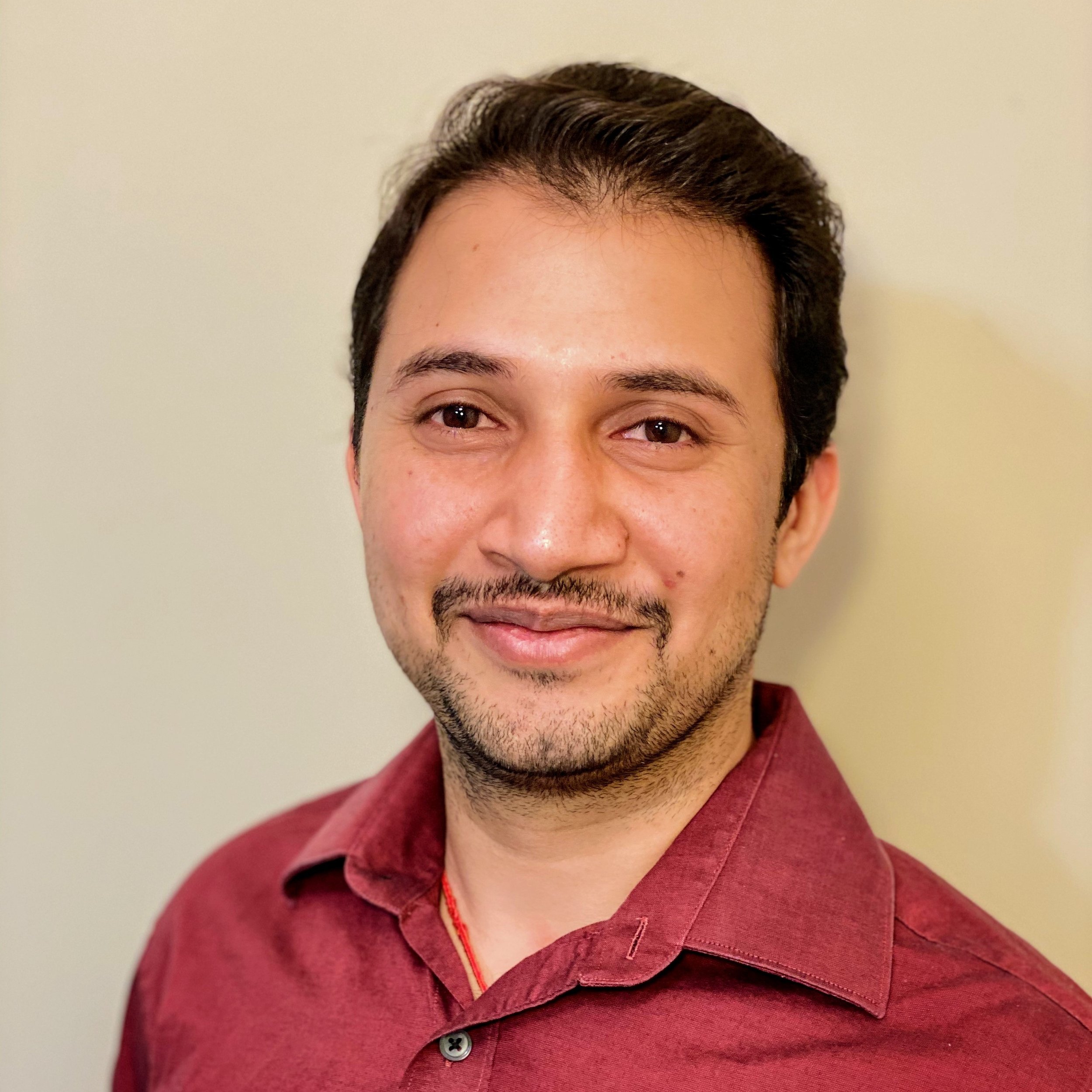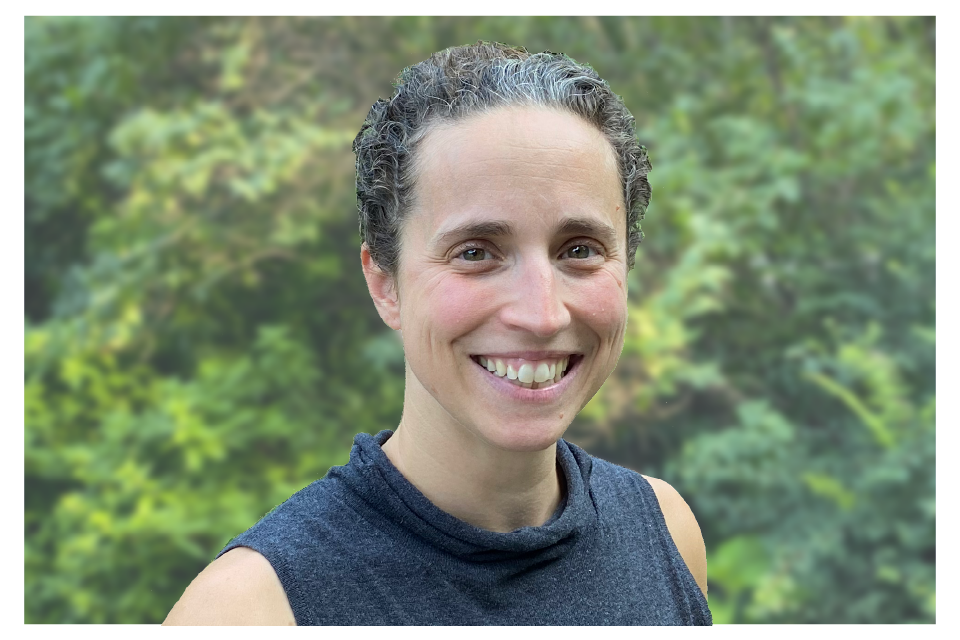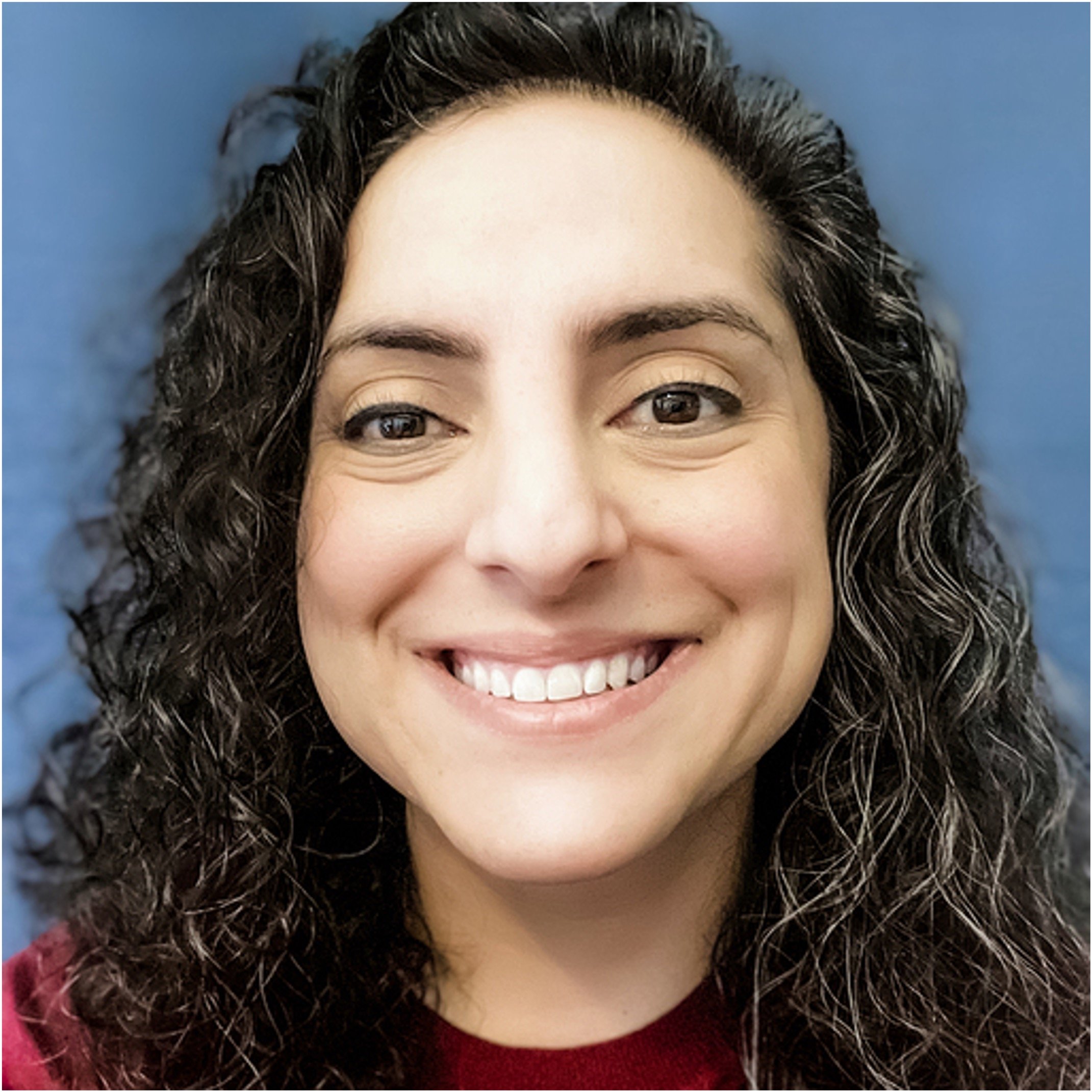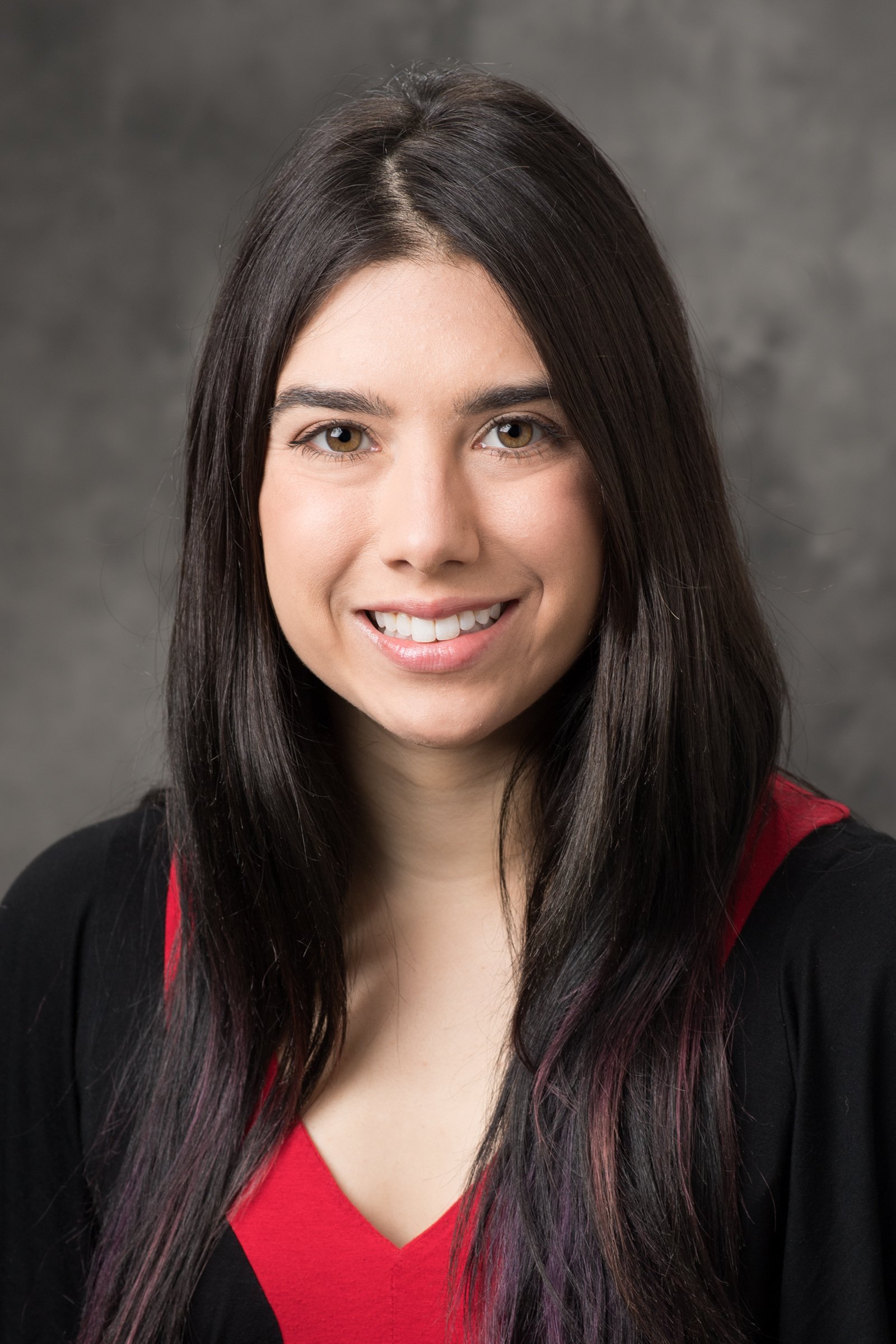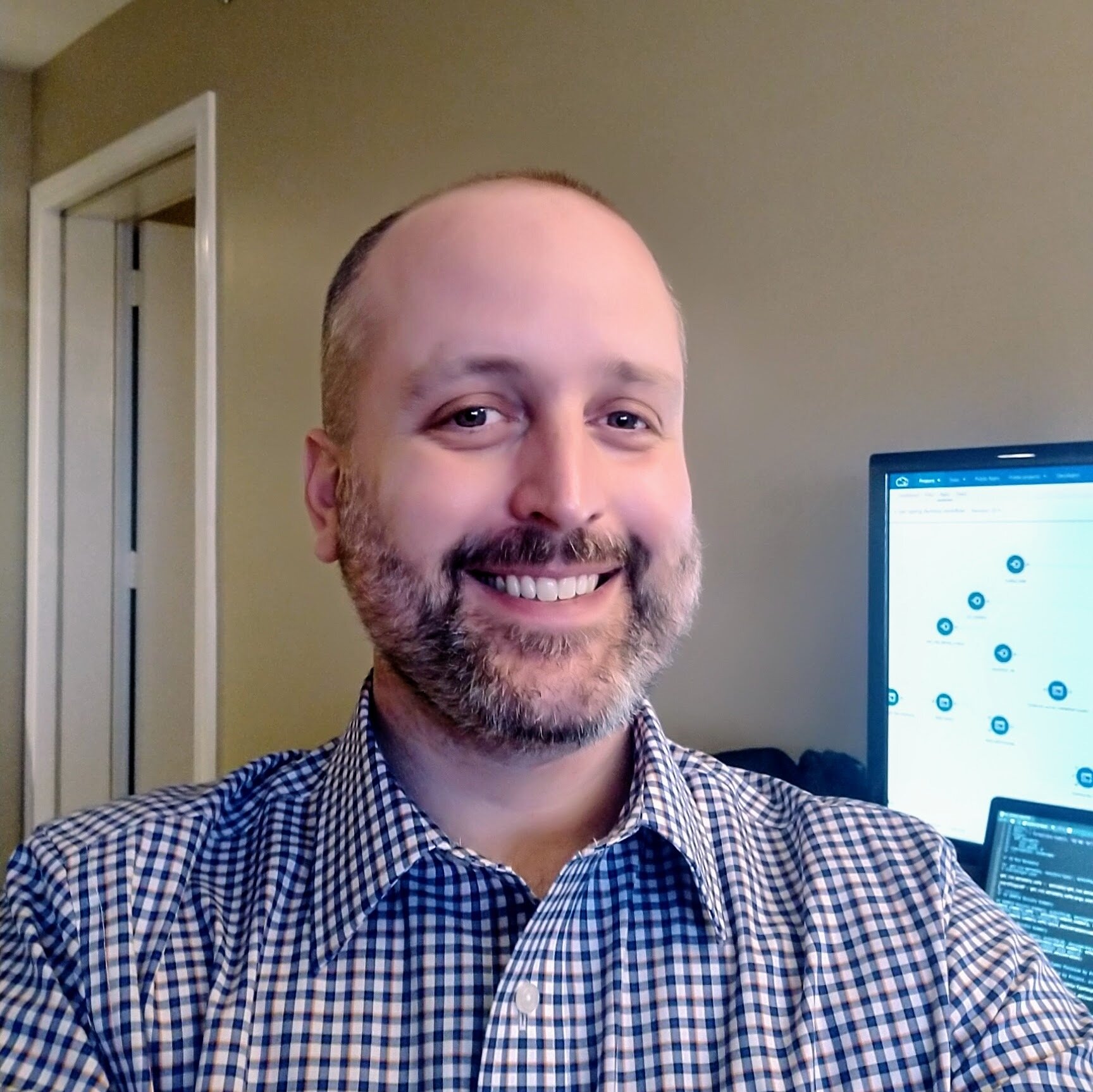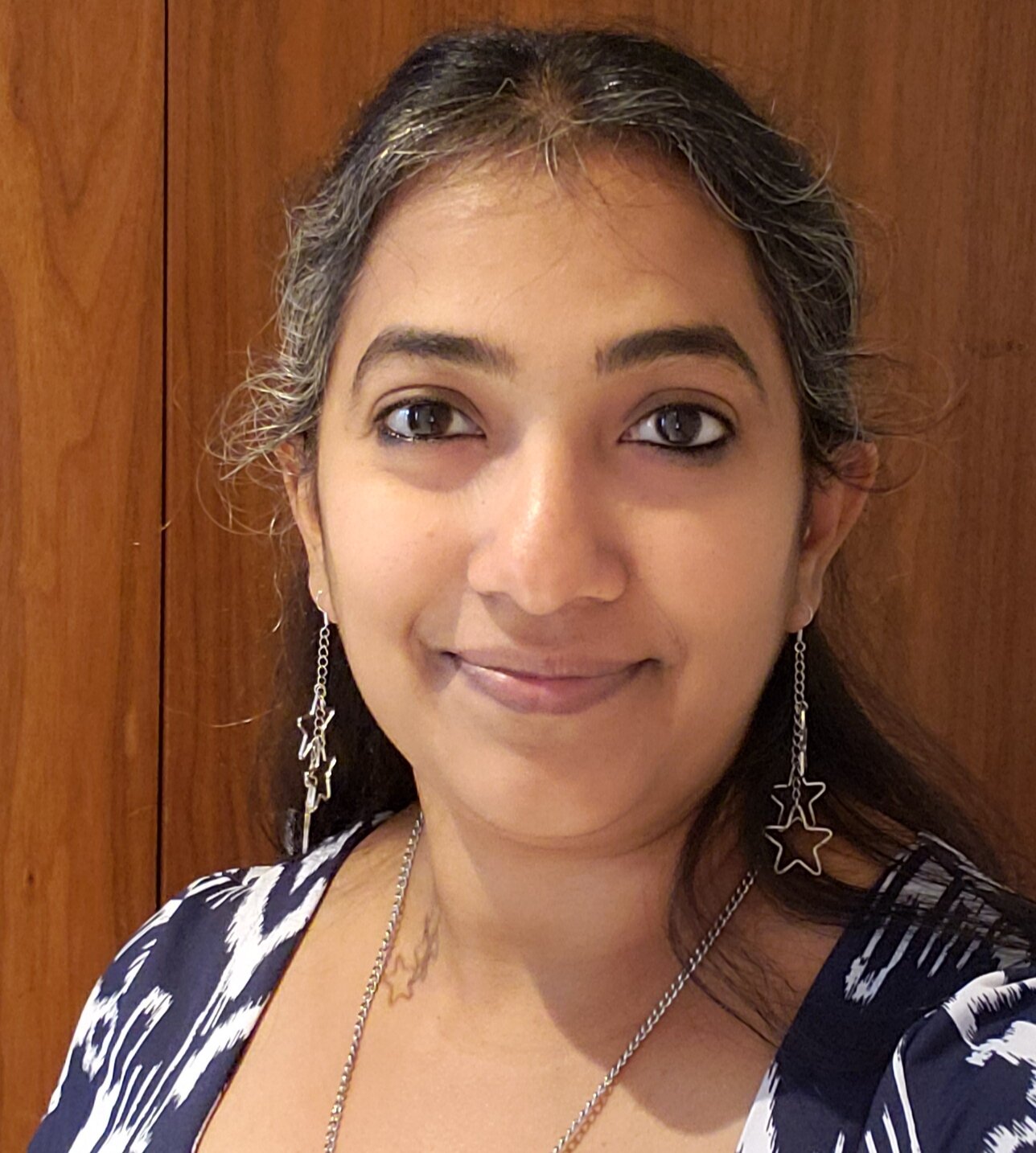Monthly Webinar Series
Hear from members of our community and present your results. Our monthly webinar series features early careerists and seasoned researchers alike, profiling their successes, struggles, and triumphs using the Cancer Genomics Cloud.
Webinar, July 26, 2023 at 2:00pm
Enhancing Microbial Insights in Cancerous Tissue: Unveiling the Hidden Microbiome with an Advanced Host Depletion Pipeline
This July, our webinar features Ms. Caitlin Guccione of UCSD, who will give an insightful talk on the cancer microbiome, and a novel pipeline for extracting microbial communities from cancerous tissue samples. Ms. Guccione’s approach improves upon existing methods by effectively capturing more microbial reads while minimizing human contamination.
Key points of this webinar include:
The novel pipeline’s effectiveness in filtering out irrelevant reads, providing a clearer understanding of the cancer microbiome.
The significance of comprehending the tumor tissue microbiome, which opens avenues for analyzing disease trajectories along with potential therapeutic interventions.
More about the speaker
Caitlin Guccione
Ms. Guccione is a graduate of the University of Rhode Island (’22) with a bachelor’s degree in applied math and computer science and a master’s in applied math. Since then, she has pursued a PhD in bioninformatics and systems biology at UCSD, co-advised by Dr. Rob Knight and Dr. Kit Curtius. Her dissertation focuses on exploring mathematical modeling of the cancer microbiome.
Webinar, June 28 at 2:00 pm (EDT)
Recurrent Repeat Expansions in Cancer
This June, our webinar features Dr. Gamze Gürsoy from the New York Genome Center. Dr. Gürsoy’s group has identified tandem repeat expansions in cancer genomes across 29 cancer types, revealing recurrent repeat expansions (rREs) that are subtype-specific. They found that these rREs, which are non-uniformly distributed in the genome and often located near regulatory elements, could play a role in gene regulation and contribute to genetic variation in human cancer. They further validated a set of rREs using long-read sequencing and developed small molecules targeting an intronic rREs that showed decrease in cell proliferation.
More about the speaker
Gamze Gürsoy, PhD, is an Assistant Professor in the Departments of Biomedical Informatics and Computer Science at Columbia University. She is also a core member at New York Genome Center. Dr. Gürsoy’s lab’s overarching research goal is to harmonize diverse fields such as biology, bioinformatics, molecular biology, engineering, and cryptography to achieve two fundamental aims:
(1) to increase biomedical data access to a wider group of scientists while preserving privacy of research participants; and
(2) to uncover the molecular underpinnings of gene dysregulation via knowledge gained from functional genomics data.
Dr. Gürsoy leads a group of computational and experimental scientists, creating opportunities for training in cross-disciplinary studies in her lab.
Webinar, May 26 at 2:00 pm ET
A computational framework for detecting low abundance clonal hematopoiesis mutations in large-scale tumor sequence datasets
This May, our webinar series features a talk by Dr. Vaidhyanathan Mahaganapathy, a computational biologist at the Ellison Institute for Transformative Medicine and a recent PhD graduate from the Khiabanian Lab of Rutgers University.
In this webinar, Dr. Mahaganapathy will summarize his work with Dr. Khiabanian’s group on developing the MERIT pipeline on the CGC. MERIT utilizes Samtools to identify all positions with alternate alleles from the aligned, indexed sequencing reads and then extracts additional information including alleles' depths, Phred quality, and position-in-read information for all variants. MERIT was originally developed by Mohammad Hadigol, but is updated and maintained by Viadhyanathan. He will speak about:
Clonal hematopoiesis (CH), which is associated with inflammation, cardiovascular diseases, and a reduction in overall survival rate.
Building a computational pipeline that can reliably and reproducibly call low abundance somatic CH mutations, in pan-cancer primary tumor and matched normal blood exome sequencing samples from TCGA.
More about the speaker
Vaidhyanathan Mahaganapathy
Vaidhyanathan is a biotechnologist by training, who transitioned to a bioinformatician when he realized he could combine his passion for Biology with the puzzle-solving skills needed for scripting. During his dissertation, he explored different variant calling approaches on a variety of human genomic datasets and in the process developed skills for building, testing, and optimizing robust computational pipelines and workflows. In his current position at the Ellison Institute, he is working on establishing a sequence analysis toolbox for the different projects, and assisting on establishing a long-read sequencing protocol.
LinkedIn: linkedin.com/in/vaidhy-m
Webinar, April 26 at 1:00 pm ET
Mining for Alternative Polyadenylation Events in Cancer using Large Scale RNA-Seq Datasets
This April, our webinar series features a talk by Dr. Tolga Can, a Professor at the Colorado School of Mines in the Department of Computer Science.
In this webinar, Tolga will summarize his work with Dr. Elif Erson-Bensan’s group on screening for alternative polyadenylation events in cancer cells using publicly available RNA-seq datasets and utilizing the resources on the CGC. He will specifically talk about:
How the tools on CGC can be utilized to speed up data upload, preprocessing, and alignment stages for hundreds of samples.
How programmatic access allows you to automatically update metadata of individual samples to avoid manually entering the information for datasets containing hundreds of samples.
Use of locally installed and cloud-based tools together for downstream analysis
More about the speaker
Tolga Can
Tolga Can received his BSc degree in computer engineering from Middle East Technical University, Turkey, in 1998 and his PhD degree in computer science from the University of Santa Barbara in 2004 as a Fulbright scholar. He worked as a tenured professor at the Computer Engineering Department, Middle East Technical University (METU) until he joined the Colorado School of Mines as a Teaching Professor in Computer Science.
His main research interests include bioinformatics, graph theory, and algorithms. He has worked on protein structure analysis and on large-scale biological networks.
Webinar, March 22 at 2:00 pm ET
Interoperability and Integration: GA4GH Standards at work on the CGC
This March, our webinar series features a talk by Ms. Angela Page and Dr. Michele Mattioni, from GA4GH and Velsera respectively. The Global Alliance for Genomics and Health (GA4GH) is a policy-framing and technical standards-setting organization, seeking to enable responsible genomic data sharing within a human rights framework.
In the first part of the webinar, Ms. Page will introduce the GA4GH organization, its products, and how to get involved with both. Dr. Mattioni will showcase how the Cancer Genomics Cloud has used GA4GH standards to enable interoperability and connecting to other platforms. Using DRS clients, researchers on the CGC can access data from other Velsera platforms, such as CAVATICA and Biodata catalyst, as well as platforms in other ecosystems. The CGC enables cross-platform and cross-dataset analysis using this approach in a user-friendly way.
Webinar Resources: https://doi.org/10.1016/j.xgen.2021.100029
More about the speakers
Angela Page
Angela Page is based at the Broad Institute in Cambridge, US, where she leads the communications and operations teams for the Global Alliance for Genomics and Health. She is responsible for ensuring GA4GH achieves its goals in the areas of international outreach and engagement. She has been with the organization since 2014.
LinkedIn: https://www.linkedin.com/in/angela-pagega4gh/
Michele Mattioni, PhD
Michele Mattioni, PhD, leads the Integration and Interoperability strategy at Velsera. He is involved in several GA4GH standards and he is interested in making data actionable and findable by researchers.
Webinar, Feb 22 at 2:00 pm ET
Identifying biomarkers of differential chemotherapy response in TNBC patient-derived xenografts with a CTD/WGCNA approach
This February, our webinar series features a talk by Dr. Varduhi Petrosyan at Baylor College of Medicine. Dr. Petrosyan will present work she and colleagues conducted on the Cancer Genomics Cloud using their novel network-based approach, CTD/WGCNA.
Although systemic chemotherapy remains the standard of care for triple-negative breast cancer (TNBC), even combination chemotherapy is often ineffective. The identification of biomarkers for differential chemotherapy response would allow for the selection of responsive patients, thus maximizing efficacy and minimizing toxicities. Here, we leverage TNBC patient-derived xenografts (PDXs) to identify biomarkers of response. To demonstrate their ability to function as a preclinical cohort, PDXs were characterized using DNA sequencing, transcriptomics, and proteomics to show consistency with clinical samples. We then developed a network-based approach (CTD/WGCNA) to identify biomarkers of response to carboplatin (MSI1, TMSB15A, ARHGDIB, GGT1, SV2A, SEC14L2, SERPINI1, ADAMTS20, DGKQ) and docetaxel (c, MAGED4, CERS1, ST8SIA2, KIF24, PARPBP). CTD/WGCNA multigene biomarkers are predictive in PDX datasets (RNAseq and Affymetrix) for both taxane- (docetaxel or paclitaxel) and platinum-based (carboplatin or cisplatin) response, thereby demonstrating cross-expression platform and cross-drug class robustness. These biomarkers were also predictive in clinical datasets, thus demonstrating translational potential.
More about the speaker
Varduhi Petrosyan is a senior bioinformatics analyst at Baylor College of Medicine (Texas Medical Center). She employs big data approaches to identify biological signal in complex and heterogenous disease. Her research interests include network analysis, deconvolution, and liquid biomarkers.
LinkedIn: https://www.linkedin.com/in/varduhi-petrosyan/
Webinar, Jan 25, 2023 at 2:00 pm
You can do it! Analyzing your data with custom workflows on the CGC
This January, the CGC Webinar Series features a talk by Dr. Rowan Beck from Seven Bridges.
Rowan is a Community Engagement Manager working on the Cancer Genomics Cloud.
In this upcoming webinar, Rowan will talk about Common Workflow Language (CWL), the CGC CWL editor, and its various applications.
She will then demonstrate how to create a custom app on the CGC using the CWL editor, and how to work with the CWL editor to tailor a workflow to fit your research needs.
More about the speaker
Dr. Beck’s primary interests lie at the intersection of public health and large scale “omics” analyses. She earned her PhD in 2019 from the University of North Carolina at Chapel Hill. Her graduate work focused on the identification of microRNAs and other regulatory mechanisms that underpin the association between environmental toxicant exposure and diabetes phenotypes. Prior to joining Seven Bridges, Rowan worked as a toxicologist at Reynolds American to evaluate the chemical, biological, and toxicological data generated across numerous products, materials, ingredients, technologies, and manufacturing processes.
LinkedIn: https://www.linkedin.com/in/rfbeck/
Webinar, October 27 2pm ET
Analysis of multi-omics data using the Cancer Genomics Cloud
This October, the CGC Webinar Series features a talk by Dr. Min Zhang from Purdue University.
Dr. Min Zhang is a professor in the Department of Statistics and the Associate Director of Data Science at Purdue University Center for Cancer Research. By incorporating biological knowledge in statistical modeling, her research focuses on developing new statistical methods to analyze high-dimensional clinical and omics data that often occurs in biomedical research.
In this presentation, Dr. Zhang will share her experience organizing a workshop on using CGC to access, share, and analyze multi-omics datasets with RNA-seq data as a case study. Dr. Zhang worked with the CGC Seven Bridges team to design a 4 part lecture that taught undergraduate and graduate students how to run a RNA-seq analysis, bulk and single-cell using the CGC. She will also share how she is using the CGC to implement SIGNET for genome-wide gene regulatory network construction.
Example of a SIGNET network
References
Chen C, Zhang D*, Hazbun T*, Zhang M*. (*co-corresponding authors, 2019). Inferring gene regulatory networks from a population of yeast segregants. Scientific Reports. 9(1):1197. <https://www.nature.com/articles/s41598-018-37667-4>
Chen C, Ren M, Zhang M, and Zhang D. (2018). A two-stage penalized least squares method for constructing large systems of structural equations. Journal of Machine Learning Research. 19. <https://www.jmlr.org/papers/volume19/16-225/16-225.pdf>.
More about the speaker
Dr. Min Zhang is a professor in the Department of Statistics and the Associate Director of Data Science at Purdue University Center for Cancer Research. After obtaining an MD with a residency in cancer and a PhD in Neuroscience, she received another PhD from the Department of Biological Statistics and Computational Biology at Cornell University. By incorporating biological knowledge in statistical modeling, she has focused on developing new statistical methods to analyze high-dimensional clinical and omics data that often occurs in biomedical research.
Webinar, September 29 2pm ET
Democratizing Machine Learning and Drug Discovery Tool Access on the Cancer Genomics Cloud
This September, the CGC Webinar Series features a talk by Dr. Dennis A. Dean III from Seven Bridges.
Dr. Dean is a Principal Investigator at Seven Bridges, leading several national-scale genomic analysis projects. Dr. Dean leads the Translational Computation and Analytics Team and will present their progress in making machine learning models developed as part of the National Cancer Institute’s Predictive Oncology Model and Data Clearinghouse (MoDaC) program available for use on the Cancer Genomics Cloud. The NCI-sponsored MoDaC program aims to add sophisticated machine learning and drug discovery tool sets to the challenge of identifying novel treatments for Cancer Patients. The MoDaC model repository includes models from three programs: Accelerating Therapeutics for Opportunities in Medicine (ATOM), Advance Computing Solutions for Cancer, and ongoing NCI-DOE collaborations.
In this presentation, he will demonstrate that translating the MoDaC tools into cloud-native resources on the CGC supports interactive and GUI-driven analysis. Consequently, allowing access to a broader user base than those who traditionally have the technical expertise required to work with machine learning models. He will present ML tools developed as part of the Predictive modeling for Pre-Clinical Screening and the Accelerating Therapeutics for opportunities in Cancer programs. And present details on porting the AMPL1 (A Data-Driven Modeling Pipeline for Drug Discovery) tools as a focal point for discussing standards that might promote portability and ensure equity as pertaining to use and access.
Reference
1. Minnich, A. J. et al. AMPL: A Data-Driven Modeling Pipeline for Drug Discovery. J Chem Inf Model 60, 1955–1968 (2020).
More about the speaker
Dr. Dean is a Principal Investigator at Seven Bridges, leading several national-scale genomic analysis projects. He directs the Translational Computation and Analytics Team, which focuses on computational approaches to advancing the life sciences, including artificial intelligence and machine learning applications. He also leads Seven Bridges’ collaborations with the US Food and Drug Administration (FDA) through the BioCompute Object Initiative and the Patient-Derived Xenograft Network, funded by the National Cancer Institute (NCI).
LinkedIn: https://www.linkedin.com/in/dennis-a-dean-ii-ph-d-4b97b1b/
Webinar, August 24 2pm ET
FragPipe enables one-stop proteomics data analysis
This August, the CGC Webinar Series features a talk by Dr. Fengchao Yu from University of Michigan and Dr. Rowan Beck from Seven Bridges.
In this upcoming webinar, Dr. Yu will present talk about FragPipe, a one-stop proteomics data analysis suite. Dr. Yu developed Fragpipe with other members of his lab. FragPipe supports both DDA and DIA data. MSFragger in FragPipe can perform closed, open, and mass-offset searches. FragPipe also supports label-free, isotopic- labeling, and isobaric labeling quantifications. Following his presentation, Dr. Beck will demonstrate how to run Fragpipe on the Cancer Genomics Cloud using publicly available data.
More about the speaker
Fengchao is a research investigator from Alexey Nesvizhskii's lab at University of Michigan. His research interests include Proteomics and Bioinformatics. Currently, Fengchao is the leading developer and maintainer of FragPipe, MSFragger, and IonQuant.
Webinar, July 27 2pm ET
A Comparative Analysis of the Molecular Characteristics of Canine and Human Gliomas
This July, the CGC Webinar Series features a talk by Dr. Nadia Lanman from Purdue University.
In this upcoming webinar, Dr. Lanman will present her research studying human gliomas using dog as a model organism. Spontaneous gliomas in dogs are being used as a translational model for human glioma, but molecular characterization is not yet complete. This work utilizes publicly available datasets to characterize the molecular characteristics of canine gliomas. Dr. Lanman shows how key canonical pathways altered in human gliomas are likewise altered in canine gliomas, and how the canine tumor microenvironment (TME), like that in humans, appears to be immunosuppressive. Gene expression profiles of astrocytomas and oligodendrogliomas show alterations in a number of signaling pathways, including several immune-related and TME-specific pathways. Dr. Lanman and her team will show how they developed a Naïve Bayes classifier that accurately classifies canine glioma pathologies based on gene expression profiles alone.
More about the speaker
Dr. Lanman is a research assistant professor in the Department of Comparative Pathobiology at Purdue University. In 2015, Dr. Lanman took a position with the Purdue University Center for Cancer Research, directing the Computational Genomics Shared Resource (CG-SR) and managing the Purdue side of the Collaborative Core for Cancer Bioinformatics (C3B), a joint bioinformatics core shared between IU and Purdue. Dr. Lanman’s work at the cancer center focuses on managing the bioinformatics core, training, and data analysis. Dr. Lanman’s research is focused on utilizing large genomics datasets to expand our knowledge of the molecular basis of cancer as well as immune and inflammatory diseases. Dr. Lanman is particularly interested in data integration and in developing methods for datasets that leverage temporal or spatial resolution.
Webinar, June 22 2pm ET
Mapping the genome of chemoresistant ovarian cancer with multi-Omic profiling
This June, the CGC Webinar Series features a talk by Dr. Michelle R. Jones from Cedars-Sinai Medical Center.
In this upcoming webinar, Dr. Jones will present her research on ovarian cancer and how she has used the CGC to map the genome of chemoresistant ovarian cancer with multi-omic profiling. Ovarian cancer is the most lethal gynecologic cancer, with most patients diagnosed at late stage and succumbing to disease due to relapse and the development of chemo-resistance. Paired primary (chemo-naive) and relapse ovarian cancer tumors were profiled for the first time in this study, and revealed large scale conservation of gene regulation and expression throughout disease progression. Insights into the differences in Homologous recombination deficient and proficient tumors implicate differing immune evasion pathways and novel candidates for further study.
More about the speaker
Michelle R. Jones, PhD
Dr. Jones is a research scientist in the Center for Bioinformatics & Functional Genomics at Cedars-Sinai Medical Center. Her lab works on projects that apply genomics methods to improve our understanding of inherited risk for ovarian cancer, and mapping the somatic genome of ovarian cancer to improve our understanding of this lethal gynecological cancer.
Webinar, May 26 2pm ET
Applications and workflows on the CGC: an update on available pipelines and how to run a GWAS on the cloud
This May, the CGC Webinar Series features a talk by Drs. Zélia Worman and Rowan Beck from Seven Bridges. Zelia is a Program Manager and Rowan is a Community Engagement Manager, both working on the Cancer Genomics Cloud.
In this upcoming webinar, they will talk about the new tools and datasets that are available on the Cancer Genomics Cloud (CGC), and will demonstrate how to run a Genome-wide association study (GWAS) on the CGC. With the growth of large-scale genomics, it’s hard to keep track of all the different tools and gold standards to analyze a particular dataset. The CGC not only hosts petabytes of public data integrated with the Cancer Research Data Commons ecosystem, but also provides the tools and pipelines to analyze it. As more data is added to the CGC, the public apps gallery has been updated to meet our users’ needs. In this webinar, we will highlight the new and updated applications and workflows to run variant calling, epigenetic studies, and long sequence reads, among others. We will also demonstrate how to perform a GWAS using the power of cloud computing.
Using the CGC, users have access to public genome cancer data without any requirement of software installation or system configuration. This setup provides access to comprehensive pan-cancer genome analyses and facilitates data mining in wide research areas, such as therapeutic discovery process. As GWAS are fairly computationally intensive, using the cloud can provide an accessible platform for all researchers, particularly ones that do not have access to a high performance computing platform.
More about the speakers
Rowan Beck, PhD
Rowan’s primary interests lie at the intersection of public health and large scale “omics” analyses. She earned her PhD in 2019 from the University of North Carolina at Chapel Hill. Her graduate work focused on the identification of microRNAs and other regulatory mechanisms that underpin the association between environmental toxicant exposure and diabetes phenotypes. Prior to joining Seven Bridges, Rowan worked as a toxicologist at Reynolds American to evaluate the chemical, biological, and toxicological data generated across numerous products, materials, ingredients, technologies, and manufacturing processes.
Zélia Worman, PhD
Prior to Seven Bridges, Zelia was a scientific program manager for the Translational Research Institute for Space Health (TRISH), where she provided recommendations on research funding and strategies, peer-review procedures, and logistics. Zelia’s research interests are on human population genomics, space health, and transposable elements.
Zélia was born in Porto, Portugal where she received her bachelors in Biochemistry and PhD in Biodiversity, Genetics and Evolution from the University of Porto. Zelia was a postdoctoral fellow at the University of Pittsburgh and Eunice Kennedy Shriver National Institute of Child Health and Human Development (NICHD) .
MORE ABOUT US AND THE CGC
Seven Bridges is the leading biomedical data company, specializing in software and data analytics to drive public and private healthcare research. We deliver end-to-end bioinformatic solutions — including access to datasets, analytic workflows and algorithms, cloud-computing infrastructure, and scientific support — that speed the path from raw experimental data to new treatments and diagnostics.
The Cancer Genomics Cloud (CGC), powered by Seven Bridges and funded by the National Cancer Institute, is a flexible cloud resource platform that enables storage, analysis, and computation of large cancer datasets in the cloud. Since its launch in 2016, the platform has been continuously iterated with new applications and features to address the exponential growth and diversity of complex datasets. With the CGC, any user with an account can easily access petabytes of data, share it, analyze and use the computational power of the cloud without having to learn how to program and get familiar with several different data portals.
Webinar, April 28 2pm ET
Bridging the gap between data scientist, clinicians and biologists using CRDC and CGC cloud resources
Below are the resources mentioned during the talk:
Learn more about the Cancer Research Data Commons (CRDC).
Watch the video explaining how the CRDC is making petabytes of cancer data available to researchers!
Have some additional questions we didn’t get to? Join our Office Hours every Tuesday at 10am and Thursday at 2pm!
This April, the CGC Webinar Series features a talk by Dr. Daoud Meerzaman, Branch Chief of the Computational Genomics and Bioinformatics Branch (CGBB) at the Center for Biomedical Informatics & Information Technology (CBIIT), National Cancer Institute (NCI).
In this upcoming webinar, Dr. Meerzaman will talk about the Cancer Genomics Cloud (CGC) and the Cancer Research Data Commons (CRDC), and how these resources work together to bridge the gap between data scientists, clinicians and biologists. The recent explosion and ease of access to large-scale omics data provides a complex and vast framework for discovery. However, there are obstacles to optimal data management and analysis as the current bioinformatics tools require strong programming skills, but many scientists and clinicians do not have the expertise or the resources to go from data production, through bioinformatic and statistical analysis and ultimately clinical interpretation.
On April 28th, 2pm ET Dr. Meerzaman will highlight how the CGC can provide various approaches to mitigate these challenges. The CGC is a cloud based infrastructure that hosts data from different publicly available projects (such as the TCGA) and connects them with analytical tools to allow users to easily share, integrate, visualize and analyze these data.
Dr. Meerzaman has published over 50 articles and served as an invited reviewer for multiple peer-reviewed scientific journals. You can find some of his work in the following review in the AACR Cancer Research Journal and research paper in Nature Biotechnology.
More about the speaker
Dr. Daoud Meerzaman, CBIIT, NCI
Prior to joining NCI, Dr. Meerzaman worked as a clinical research fellow at the Children’s Hospital National Medical Center in Washington D.C., then served as a fellow in a joint program at the University of Maryland at Baltimore and Johns Hopkins University. Currently, he is serving as the branch chief for computational genomic and bioinformatics branch. Dr. Meerzaman received his bachelor’s degree and doctorate from George Washington University in Washington, D.C, where he currently serves as an adjunct professor and teaches Molecular Mechanisms of Cancer.
MORE ABOUT US AND THE CGC
Seven Bridges is the leading biomedical data company, specializing in software and data analytics to drive public and private healthcare research. We deliver end-to-end bioinformatic solutions — including access to datasets, analytic workflows and algorithms, cloud-computing infrastructure, and scientific support — that speed the path from raw experimental data to new treatments and diagnostics.
The Cancer Genomics Cloud (CGC), powered by Seven Bridges and funded by the National Cancer Institute, is a flexible cloud resource platform that enables storage, analysis, and computation of large cancer datasets in the cloud. Since its launch in 2016, the platform has been continuously iterated with new applications and features to address the exponential growth and diversity of complex datasets. With the CGC, any user with an account can easily access petabytes of data, share it, analyze and use the computational power of the cloud without having to learn how to program and get familiar with several different data portals.
Webinar - March 23, 2022
Genomic Alterations in Extraskeletal Myxoid Chondrosarcoma
The CGC webinar series is back in March, featuring a talk by Ms. Trudy Zou from the University of Pittsburgh School of Medicine, in Pittsburgh, PA, USA. Trudy conducts research primarily studying chondrosarcoma with Drs. Rebecca Watters and Kurt Weiss at the Musculoskeletal Oncology Laboratory (MOL).
The Musculoskeletal Oncology Laboratory aims to better understand the biology of various primary and metastatic musculoskeletal tumors and translate discoveries into clinical solutions. Trudy’s project looks at extraskeletal myxoid chondrosarcoma (EMC), a rare musculoskeletal tumor with an indolent course and right rates of recurrence and metastasis to the lungs. In 70% of cases, it is characterized by the translocation of the NR4A3 gene on chromosome 9 to the EWSR1 N-terminal transactivation domain on chromosome 22.
In this webinar, Trudy will present an extremely rare primary EMC sample collected from a patient with matching lung metastasis, pelvic metastasis, normal lung, and blood available at the MOL lab. They used whole genome sequencing to identify structural variants that contribute to metastasis to the lungs and progression to pelvic metastases and that can be targeted for therapy. Trudy started using the Cancer Genomics Cloud in November 2021, and will be presenting the results of her and the lab’s work.
Trudy Zou is a medical student in the Physician Scientist Training Program at the University of Pittsburgh School of Medicine. She is primarily studying chondrosarcoma with Drs. Rebecca Watters and Kurt Weiss at the Musculoskeletal Oncology Laboratory (MOL). She earned her Bachelor of Science in cellular and molecular biology at Duke University, where she also studied drivers of metastasis and therapeutics for chondrosarcoma under Dr. Julia Visgauss.
More about us and the CGC
Seven Bridges is the leading biomedical data company, specializing in software and data analytics to drive public and private healthcare research. We deliver end-to-end bioinformatic solutions — including access to datasets, analytic workflows and algorithms, cloud-computing infrastructure, and scientific support — that speed the path from raw experimental data to new treatments and diagnostics.
The Cancer Genomics Cloud (CGC), powered by Seven Bridges and funded by the National Cancer Institute, is a flexible cloud resource platform that enables storage, analysis, and computation of large cancer datasets in the cloud. Since its launch in 2016, the platform has been continuously iterated with new applications and features to address the exponential growth and diversity of complex datasets. With the CGC, any user with an account can easily access petabytes of data, share it, analyze and use the computational power of the cloud without having to learn how to program and get familiar with several different data portals.
Webinar - July 2021
Topic for July: Utilizing the Seven Bridges platform for training of a new generation of Health Data Scientists
This July, the CGC Webinar Series features a talk by our colleagues at Georgetown University: Dr. Yuriy Gusev, Associate Professor, and Krithika Bhuvaneshwar M.S, Research Faculty Instructor.
Dr. Yuriy Gusev, Associate Professor
Dr. Yuriy Gusev is an Associate Professor of Bioinformatics and a Bioinformatics Lead at the Georgetown University Innovation Center for Biomedical Informatics (ICBI). Dr. Gusev is the director of the graduate program in Health Informatics and Data Science and co-director of the Informatics Shared resource for the Lombardi Comprehensive Cancer Center at Georgetown University. He has over 20 years of experience in teaching and training in bioinformatics and computational biology at several academic centers in the US. He has developed several new curricula for graduate and undergraduate programs at Georgetown.
Krithika Bhuvaneshwar M.S., Research Faculty Instructor
Ms. Krithika Bhuvaneshwar is a Research Instructor Faculty & Curriculum Coordinator for the Master’s in Health Informatics and Data Science program, and is also a Senior Bioinformatician at the Innovation Center for Biomedical Informatics (ICBI), Georgetown University. She has helped organize training workshops in Elsevier Pathway Studio, Globus Genomics, system biology, immuno-oncology, and most recently – imaging informatics for faculty and staff at Georgetown University Medical Center (GUMC).
In addition, both Dr. Gusev and Ms. Bhuvaneshwar developed a successful Massive Open Online Course (MOOC) on EdX titled “Demystifying Big Biomedical Data – a user’s guide,” which attracted over 8000 students from around the world. At this upcoming webinar, Yuriy and Krithika will share their approach, methodology, and examples of graduate-level courses where they utilize the CGC as a teaching platform for the graduate education program in Masters in Health Informatics and Data Science program at Georgetown University.
Also, check out our interview with Yuriy and Krithika discussing utilizing the Seven Bridges platform for training of a new generation of Health Data Scientists!
Webinar - May 2021
Topic for May: Towards best practices in cancer mutation detection with whole-genome and whole-exome sequencing
This May, the CGC Webinar series features a presentation by Dr. Wenming Xiao, Lead Bioinformatics Scientist of the Office of New Drugs and the Office of Oncological Diseases, at the Center for Drug Evaluation and Research, of the Food and Drug Administration (FDA). First formed in 1906, the United States FDA’s mission is to promote and protect public health by ensuring the safety and efficacy of food products, drugs, vaccines, cosmetics, and medical devices, among many others.
Clinical applications of precision oncology require accurate tests that can distinguish true cancer-specific mutations from errors introduced at each step of NGS. To date, no bulk sequencing study has addressed the effects of cross-site reproducibility or the biological, technical, and computational factors that influence variant identification.
In this upcoming webinar, Dr. Xiao will discuss his research into the systematic interrogation of somatic mutations in paired tumor-normal cell lines to identify factors affecting detection reproducibility and accuracy. Using whole-genome sequencing (WGS) and whole-exome sequencing (WES), Dr. Xiao evaluated the reproducibility of different sample types with varying input amount and tumor purity, multiple library construction protocols, followed by processing with nine bioinformatics pipelines. As a result, he found that read coverage and callers affected both WGS and WES reproducibility, but WES performance was influenced by insert fragment size, GC content, and the Global Imbalance Value (GIV; G>T/C>A) score. Finally, taking into account library preparation protocol, tumor content, read coverage, and bioinformatics processes concomitantly, Dr. Xiao is able to recommend actionable practices to improve reproducibility and accuracy of NGS experiments for cancer mutation detection.
Wenming Xiao, Ph.D.
Webinar - April 2021
Topic for April: Exploring the landscape of breast cancer multi-omics analysis on the Cancer Genomics Cloud
During the first CGC Webinar in 2021, Dave Roberson and Sai Lakshmi Subramanian provided a high-level overview and demonstration of the Cancer Genomics Cloud and its features. This month, Seven Bridges bioinformaticians Dr. Vesna Pajic and Nevena Vukojicic will present a detailed account of how to use these CGC features for integrative analysis of data coming from different omics experiments, commonly referred to as multi-omics analysis.
In this April webinar, Vesna and Nevena will provide an overview of multi-omics analysis, and how data can be integrated and jointly analyzed on CGC. Various features of CGC that enable such integration will be presented on a Breast Cancer Multi-omics Analysis Use Case, by combining mRNA and miRNA profiles from TCGA (specifically the TCGA BRCA dataset) and proteomics data from CPTAC dataset, all of which are available publicly on CGC.
Meet The Team
Dr. Vesna Pajic, Bioinformatics Analyst and a Team Lead, Seven Bridges
Nevena Vukojicic, Bioinformatics Analyst, Seven Bridges
For More Information
To learn more about the CGC and its resources, please see our documentation. For any additional inquiries, please contact support@sbgenomics.com
Webinar - March 2021
Topic for March: Uncovering novel roles of microRNAs in tumors using the Cancer Genomics Cloud
This March, the CGC Webinar series features a talk from Dr. Xavier Bofill-De Ros, a Research Fellow from the National Cancer Institute (NCI). The NCI is the largest and oldest institute of the National Institutes of Health (NIH), with a mission to conduct and support research for the prevention, understanding, and treatment of cancer. Dr. Bofill-De Ros’s research includes studies of how microRNA biogenesis affects tumor progression, and of mechanisms affecting microRNA stability. Dr. Bofill-De Ros also aided in the NCI’s development of QuagmiR, the first cloud-based tool for microRNA isoform analysis from NGS data.
In this upcoming talk, Dr. Bofill-De Ros will discuss the analysis of microRNA isoforms using the Cancer Genomics Cloud, the role of RNA structures on microRNA function, and also how to leverage “The Cancer Genome Atlas (TCGA)” and a multi-omics approach in mechanistic studies.
Xavier Bofill-De Ros, PhD
For More Information
To learn more about the CGC and its resources, please see our documentation. For any additional inquiries, please contact support@sbgenomics.com
Webinar - February 2021
Links to resources mentioned in this webinar:
FEBRUARY’S TOPIC: A MODEL FOR ADVANCING PRE-CLINICAL TRIALS ON THE CANCER GENOMICS CLOUD — THE PDXNET STORY
In February, the CGC Webinar Series will feature a talk by Seven Bridges’ own Dr. Dennis A. Dean, II, on the Patient-Derived Xenografts Development and Trial Centers Research Network (PDXNet). The NCI-funded PDXNet Consortium aims to accelerate the identification of new multi-agent cancer treatments that advance to human clinical trials by facilitating collaboration between six PDX Development and Trial Centers. The task of facilitating research collaborations and making sequencing data publicly available falls to the PDXNet Coordinating Center, led by Jackson Laboratory and Seven Bridges.
In this upcoming webinar, Dr. Dean will discuss his experience working across PDXNet teams to develop standardized procedures on the Cancer Genomics Cloud for collecting and processing sequencing data, collecting and validating model/sequencing metadata, and making PDXNet data available to the research community. Additionally, Dr. Dean will introduce novel tools developed to accelerate data collection and publishing of resources generated by the PDXNet Consortium.
Who We Are
Seven Bridges is the leading biomedical data company, specializing in software and data analytics to drive public and private healthcare research. We deliver end-to-end bioinformatics solutions, including access to datasets, analytic workflows and algorithms, cloud-computing infrastructure, and scientific support, which all speed the path from raw experimental data to new treatments and diagnostics.
For more information…
To learn more about the CGC and its resources, please see our documentation. For any additional inquiries, please contact support@sbgenomics.com
Webinar - January 2021
Announcing the CGC Monthly Webinar Series
The Seven Bridges Cancer Genomics Cloud is starting a new monthly webinar series to highlight the many uses of our platform. The webinars are scheduled for the 4th Wednesday of each month at 2:00pm ET, beginning Jan 27th, 2021. Our speaker series will include experts from within Seven Bridges, as well as project collaborators, users, and more. For those that cannot attend, recordings of these webinars will be made available on our website whenever possible. Additionally, we will also feature a series of informative articles accompanying these webinars.
Topic: The Cancer Genomics Cloud: a secure and scalable cloud-based platform to access, share and analyze multi-omics datasets
The Cancer Genomics Cloud (CGC), powered by Seven Bridges, is one of three systems funded by the National Cancer Institute to explore the paradigm of co-localizing massive public datasets, like The Cancer Genomics Atlas (TCGA), alongside secure and scalable computational resources to analyze them.
For cancer genomics research and beyond, the Cancer Genomics Cloud provides a user-friendly, web-based portal for collaborative analysis of petabytes of multi-omics data alongside private data. These above features of the Cancer Genomics Cloud will be discussed in our first webinar.
Our First Speakers for January 2021
The inaugural speakers of this webinar series will be Seven Bridges own Dave Roberson and Sai Lakshmi Subramanian. Dave is our Community Engagement Specialist at Seven Bridges. Sai is a Program Manager at Seven Bridges, currently overseeing the activities of the Cancer Genomics Cloud.
Who We Are
Seven Bridges is the leading biomedical data company, specializing in software and data analytics to drive public and private healthcare research. We deliver end-to-end bioinformatics solutions, including access to datasets, analytic workflows and algorithms, cloud-computing infrastructure, and scientific support, which all speed the path from raw experimental data to new treatments and diagnostics.
For more information…
To learn more about the CGC and its resources, please see our documentation. For any additional inquiries, please contact support@sbgenomics.com


